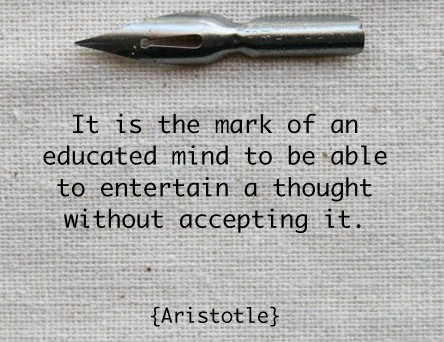~> Kant Journal #1
//Kant begins his momentous response to the stagnancy he finds in the discipline by making two important distinctions: one between a priori and a posteriori knowledge, and one between analytic and synthetic judgments. A priori knowledge is knowledge it is useless to doubt, knowledge which has the characteristic of being both necessary and universal…
~> Kant Journal #3
//The Transcendental Deduction: A Defense of the Objective Validity of the Categories of the Understanding //Kant takes up the defense of the objective validity of his ‘categories of the understanding’ in the very beginning of The Transcendental Analytic, laying out a ground for his thesis to stand on by shaping a kind of ‘transcendental self-consciousness’. This transcendental self-consciousness is a consciousness that is able to look down from above in self-reflection, a capability…
~> Kierkegaard’s Sickness Unto Death
//Pivotal definitions in the progression of Kierkegaard’s Sickness Unto Death. //Despair, Self: “The self is the conscious synthesis of infinitude and finitude that relates itself to itself, whose task is to become itself, which can be done only through the relationship to God… the progress of becoming must be an infinite moving away from itself in the infinitizing of the self, and an infinite coming back to itself in the finitizing process. But if the self does not become itself, it is in despair, whether it knows that or not”…
~> Heidegger Journal #3
//When Heidegger speaks of phenomenology, he is taking Husserl’s illuminations and carrying particular ones further along the path he sees laid out in front of them. It is an effort at the redemption of ideas that have not been carried to their full conclusion. Husserl ends up with this idea of pure consciousness and his phenomenology was essentially aimed at the study of this consciousness. However Heidegger has deep reservations and many criticisms about this notion of pure consciousness– the purity of it seems to be ethereal and too idealistic…
~> Heidegger Journal #4
//In Analysis of the Structure of Experience, Heidegger seeks to examine the question, “Is there something?” and to show that the lived experience of this question (“deliberately chosen in order to minimize pre-judgments” (p.54)) is related to the psychic subject in a wholly different way than may at first be imagined. At first one may think of asking the question ‘is there something’ and find that ‘I comport myself by setting something before me as questionable’ (p.55) is a suitable translation of the experience. However, “the simple inspection does not discover anything like an ‘I’…
~> Transcendence & Temporality
//Time is a central theme for Martin Heidegger, recurring often in his philosophical writings. One of his goals is to properly link our conception of it with our conception of the nature of our own Being, and he therefore spends quite a bit of time attempting to discern and describe its nature. His various works show the development of his thought on this subject (the title of Being and Time seems to be more deeply significant when seen in this light). One good example of this development is found in his Metaphysical Foundations of Logic: leading up to and centering around the twelfth section is a condensed and careful exploration of the idea, within which it is easier to get a bird’s-eye view of the interconnectedness– and meshing– of the multiple naming concepts involved. “Time,” Heidegger says, “claims a central systematic function in metaphysics as such…


